FMC Corp. Partners with Drexel to Bring Safe, Clean Water to Indian Villages
By Natalie Kostelni
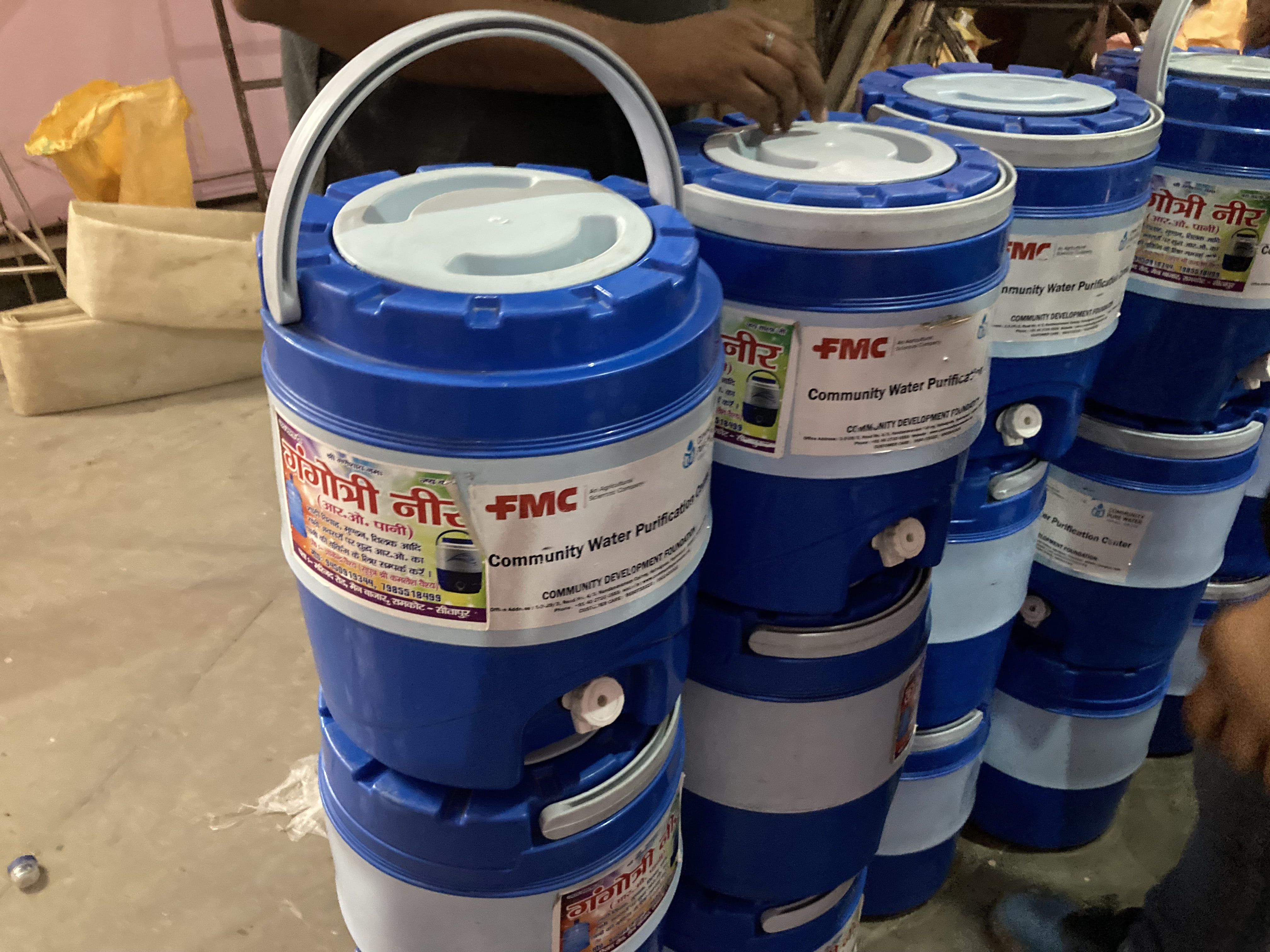
Containers used to collect and deliver water from water centers.
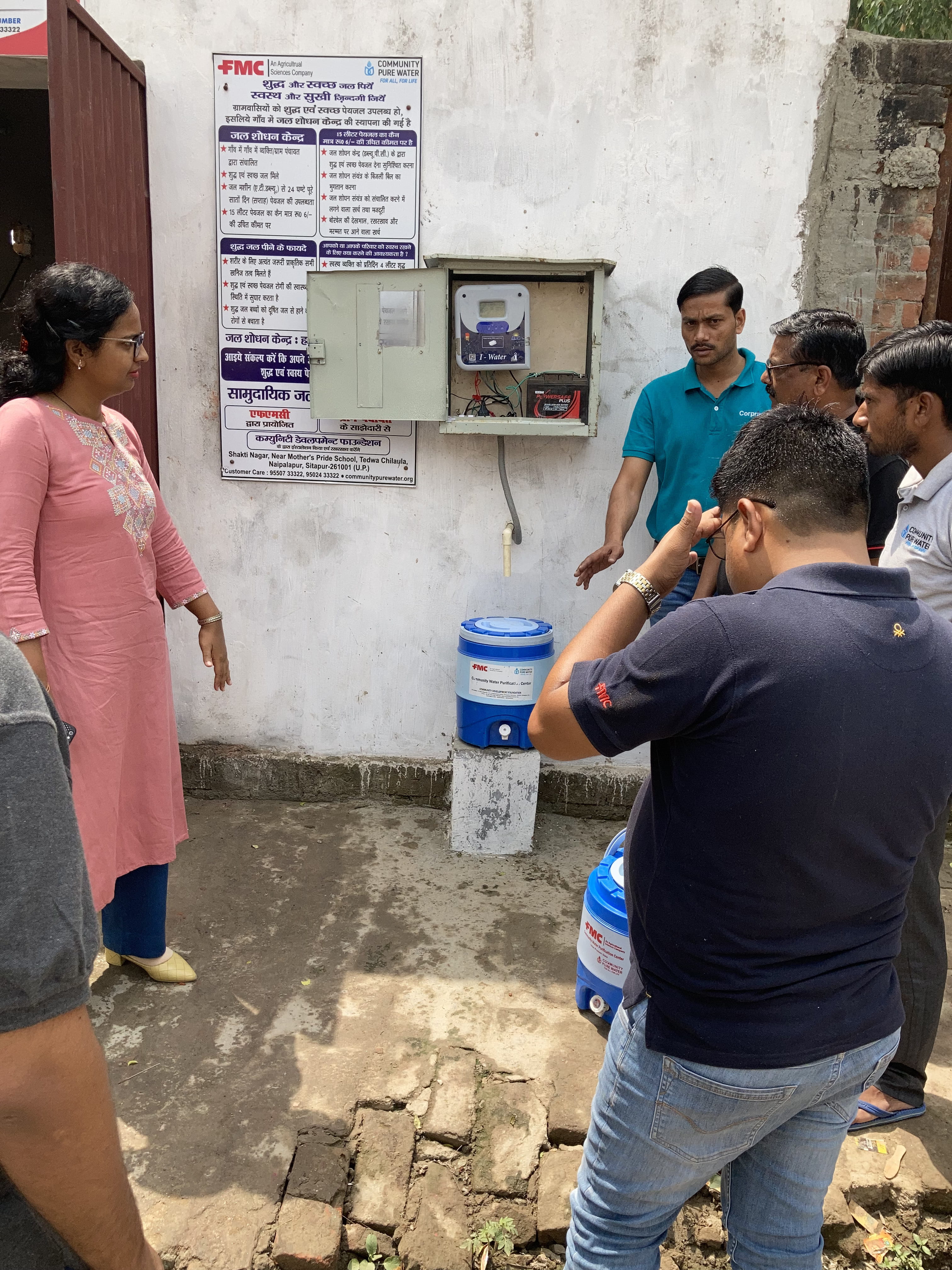
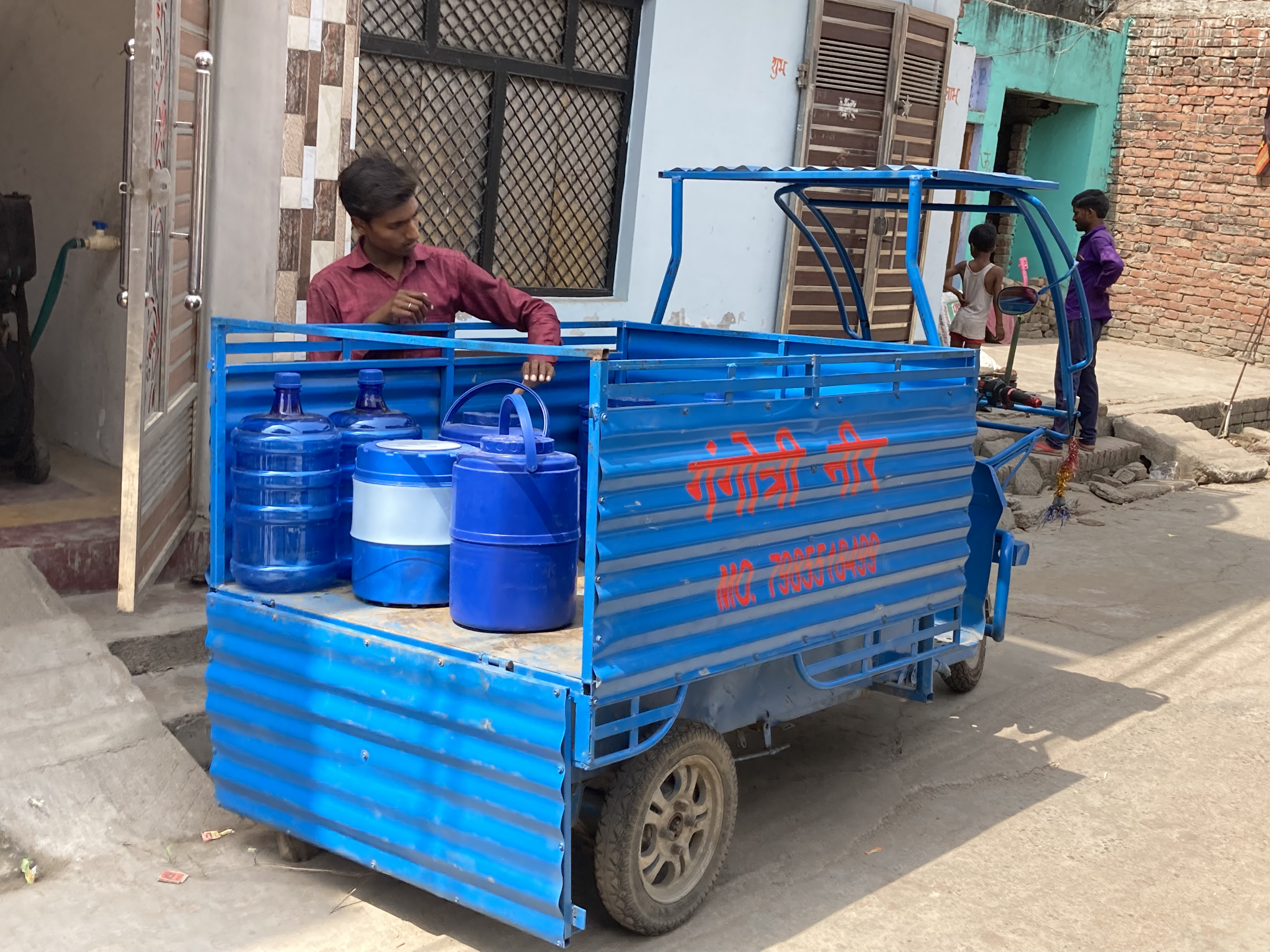
Several full water containers prepared to be delivered throughout the village.
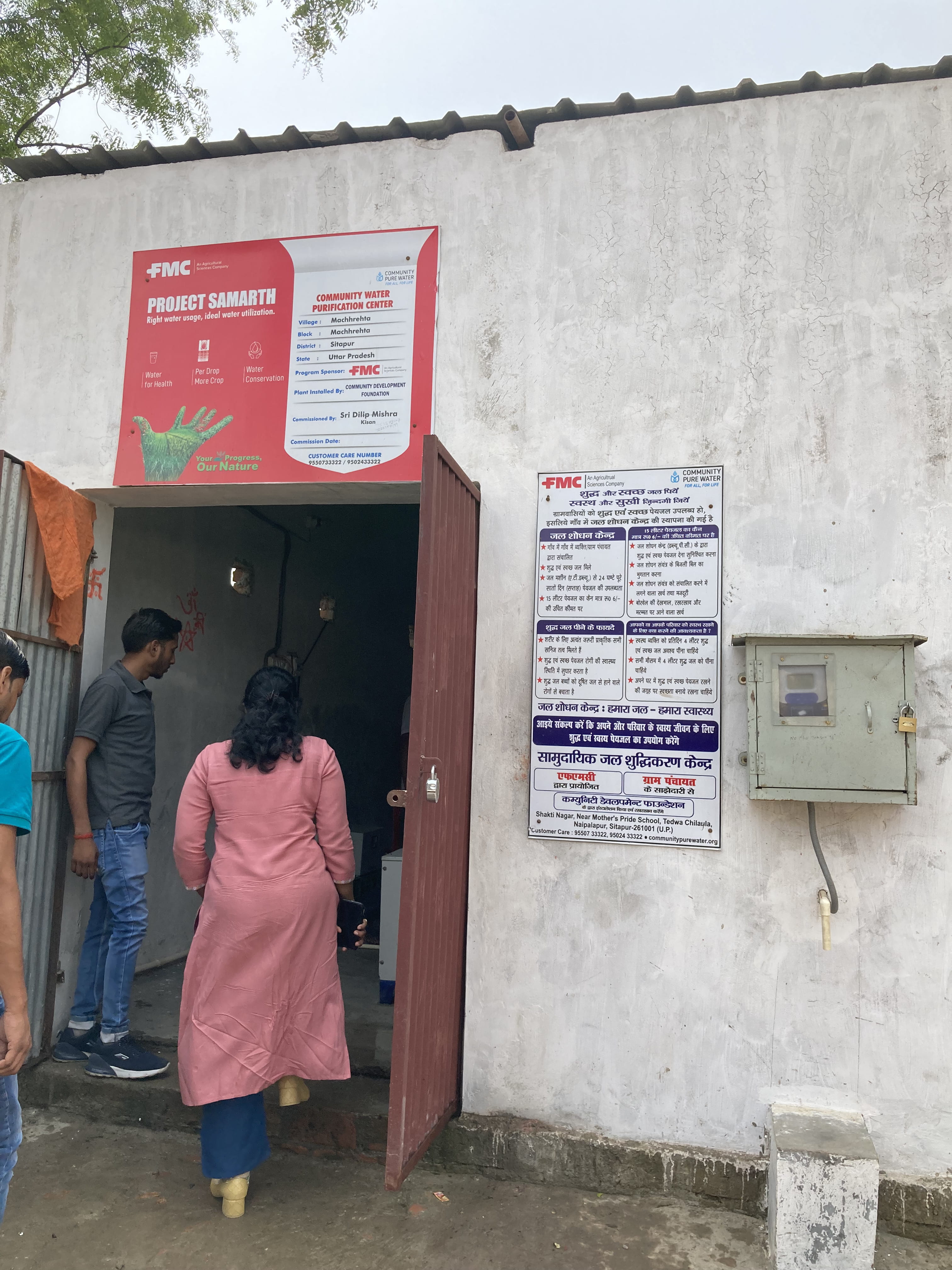
A structure that housed the water purification system.
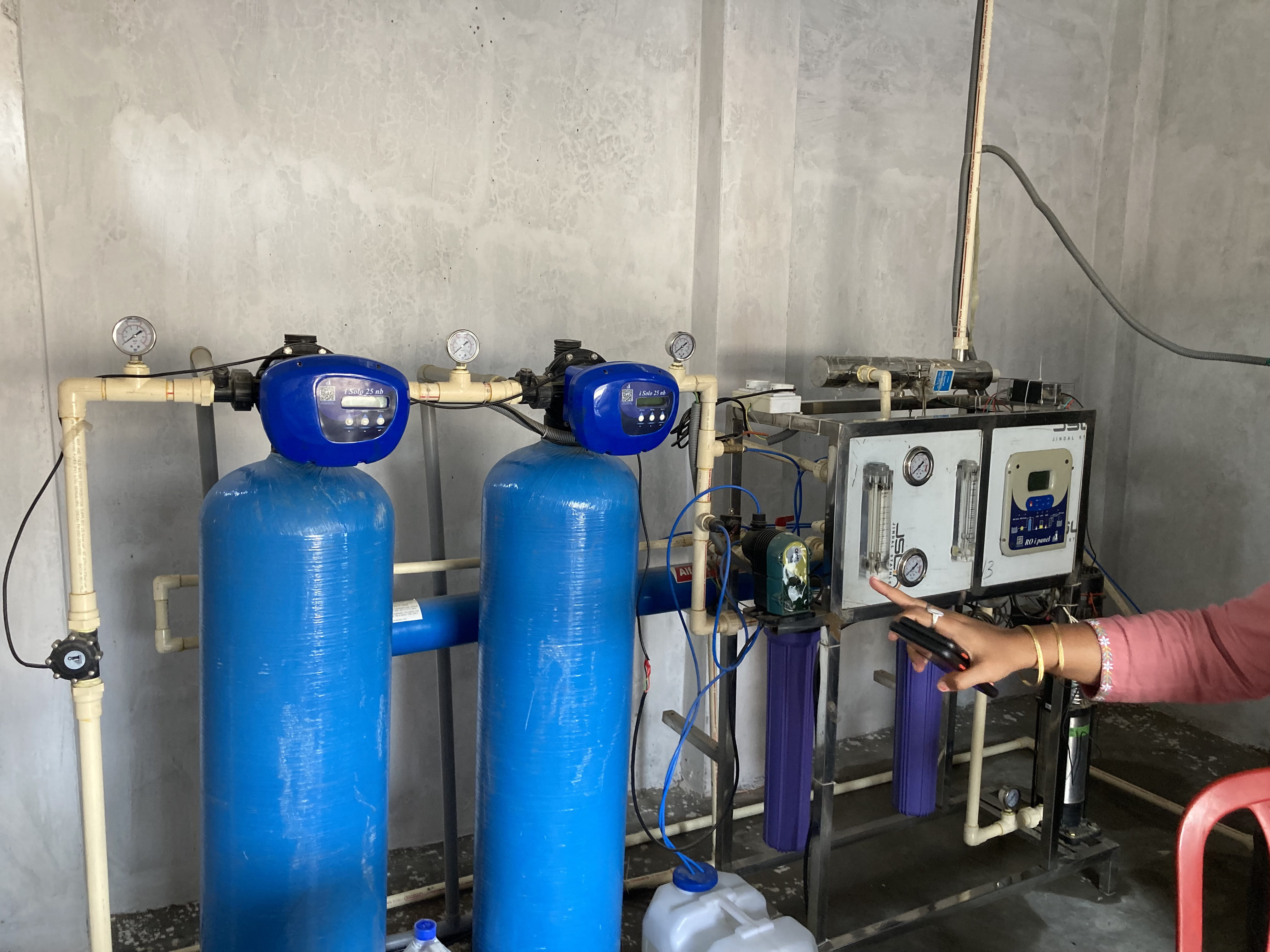
The mechanical system that purified water, making it accessible and potable for residents of the village.
The success of a novel collaboration among Drexel University, FMC Corp. and a nonprofit to bring potable water to villages in India will be used to design future endeavors involving external partners who want to take on complex projects in need of a fresh approach.
The initiative was launched by FMC, a Philadelphia-based agricultural sciences company that develops crop protection solutions for growers around the world. It is one of several FMC initiatives in India – and globally – dedicated to strengthening rural communities. FMC brought the concept to Drexel leadership in 2018 out of growing concern about the impacts of unsafe drinking water on the health and wellbeing of farming families, particularly women and youth.
“Access to safe, affordable and reliable water, sanitation and hygiene is essential to improving living standards in rural communities,” said Ravi Annavarapu, President of FMC India. “When farming families and villages are healthier, all aspects of life begin to improve.”
An interdisciplinary team of experts from Drexel and the Academy of Natural Sciences devised a three-year program in which $1 million in funding from FMC-India supported the installation of reverse-osmosis water purification centers in 56 villages in six states in India. Community Pure Water, an organization that works in rural communities to make safe drinking water affordable and accessible throughout the country, installed the water purification centers.
The project provides an example of the range of partnerships in which Drexel engages as part of a University-wide commitment to harness the Power of Partnerships that is integral to its 2030 Strategic Plan. In this case, the University, a publicly-traded, global company and nonprofit, joined forces to work internationally on a project that impacts the quality of life of thousands of Indian villagers.
The partnership required creating an operational structure to comply with various requirements related to a Corporate Social Responsibility, or CSR program. To that end, a funding model was established whereby: FMC-India provided CSR funds to CPW to install the water plants; FMC-US provided Drexel the grant funds to develop and implement the assessments of those operations; and Drexel then compiled a write up to comply with CSR reporting requirements.
An interdisciplinary team was formed that drew from many of Drexel’s strengths. It included expert faculty from the Academy of Natural Sciences, Dornsife School of Public Health, LeBow College of Business, and School of Education.
Drexel researchers used quantitative and qualitative measurements to assess the health impact of the water plants on the communities as well as perception about FMC and its corporate responsibility efforts. The research work comprised a pre- and post-assessment as water purification centers were installed.
Drexel Solutions Institute, which serves as the gateway for external partners to the University, coordinated the entities involved in the project.
Data collected over three years indicated that, as the project was executed, progress was made to provide access to safe, clean water to the villages, and that FMC was positively recognized as a good steward in spearheading those efforts.
“The success of this demonstrates that we can confidently use the operational model we established here with other partners in the future,” said Raj Suri, senior vice provost.
The genesis of the partnership and project was formed when David Unruh, senior vice president for Institutional Advancement, traveled to India in 2018 and met officials from FMC.
“We hit on an idea that there could be an interesting collaboration with CPW, Drexel and FMC but part of the exercise was to develop a model and getting it to work,” he said. “There were several moving parts and much of what we wanted to do was new to us. In the end, the results show our coordinated efforts proved successful.”
A final report presented to FMC leadership in December 2023 that incorporated the three years of data and highlighted areas where some modifications were needed to improve outcomes. For example, faculty from Drexel’s LeBow College of Business studied water usage, perception of FMC by villagers, as well as communication tactics among other variables. While perceptions of FMC and its CSR efforts were positive and heightened, messaging was an area that needed adjustment to increase usage.
“We recommended changing the methods of communicating,” said Cuneyt Gozu, associate clinical professor of organizational behavior at LeBow. “These are rural villages, and it was important to bring in the leaders of these villages from the beginning. Many villagers can’t read and the pamphlets and fliers that were created were of little use; however, they trust village leaders. Once we changed the approach and channel, the data got better.”
Drexel researchers also found that training operators running and maintaining the water plants was critical to improving use by villagers. Seasonality also played a role in the frequency of water use. Data continues to be collected and a dashboard that incorporates several metrics was created by the Drexel team and can be used to make any adjustments as FMC tracks the future impact of these water plants.
“We found there is a whole process to selecting villages, understanding where to put the plant, who was operating it and real culture and social issues about whether people would use the plants,” said Roland Wall, senior director of environmental initiatives at the Academy of Natural Sciences. “Once we took that into account, we were able to adjust our approach going forward.”
Drexel researchers from the Dornsife School of Public Health focused on the potential health benefits derived from having better access to potable water. A safe and sufficient water supply is necessary for hydration, food preparation and hygiene. Improved drinking water quality lessens microbiological contaminants that sicken adults and children, which can prevent them from attending school, according to the researchers involved.
Women and young girls also benefitted from the water plants. Females are often responsible for securing water for their families. With the plants installed and providing a reliable source of water to access, women and girls had more time they could dedicate to explore other pursuits including receiving an education, developing new skills, earning a living and contributing to their communities, according to CPW.
“Measuring health benefits takes time and years but it is well known that if you provide clean, safe water, there are health benefits and a reduction in infectious diseases,” said Jerry Fagliano, clinical professor and chair of the Department of Environmental and Occupational Health at Dornsife. “What we are finding in the data is that once the system was installed, it had a very big and positive effect on the quality of water, and over time, there was an increased percentage of users who relied on the treated water.”
For CPW, it was challenging as well satisfying to accomplish the mutual objective to provide access to purified drinking and cooking water to residents of rural communities to improve their health and productivity, said Bokka Reddy, co-founder of CPW.
While the three-year project is completed, FMC leadership continues to process the results of the work done through the partnership. The experience and data collected will inform any future projects the company undertakes to improve access to clean water in India.